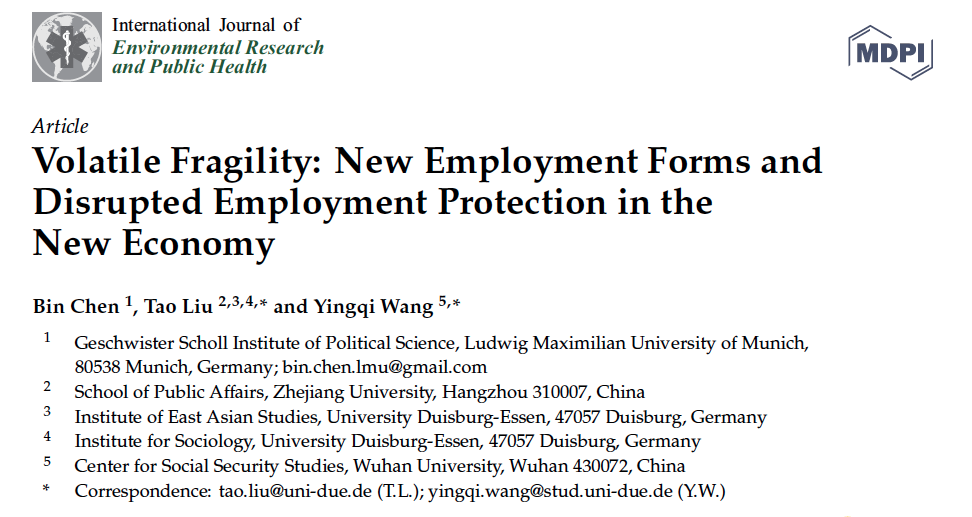di Bin Chen (Geschwister Scholl Institute of Political Science, Ludwig Maximilian University of Munich), Tao Liu (School of Public Affairs, Zhejiang University; Institute of East Asian Studies, University Duisburg-Essen; Institute for Sociology, University Duisburg-Essen) e Yngqui Wang (Center for Social Security Studies, Wuhan University)
This research is based on empirical surveys conducted in two Chinese cities, Beijing and Chengdu, which examine employment relationships, labor protection and social protection in the new digital economy. Through these theoretically informed surveys on various forms of employment via online platforms, we have found that the organizational principles and functional patterns of employment have profoundly transformed in the epoch of digitalization. The traditional employment relationship characterized by written contracts with clearly defined entitlements and obligations for employers and employees have been increasingly substituted by new volatile, fluid and fragile employment forms, softening the labor rights and social rights of “digital employees” and strengthening social control over them through online evaluation systems supported by smart phones and apps. The employees engaged in the online sharing economy have become more individualized and atomized than ever before, resulting in the emergence of an unorganized and disenfranchised “digital working class”.

